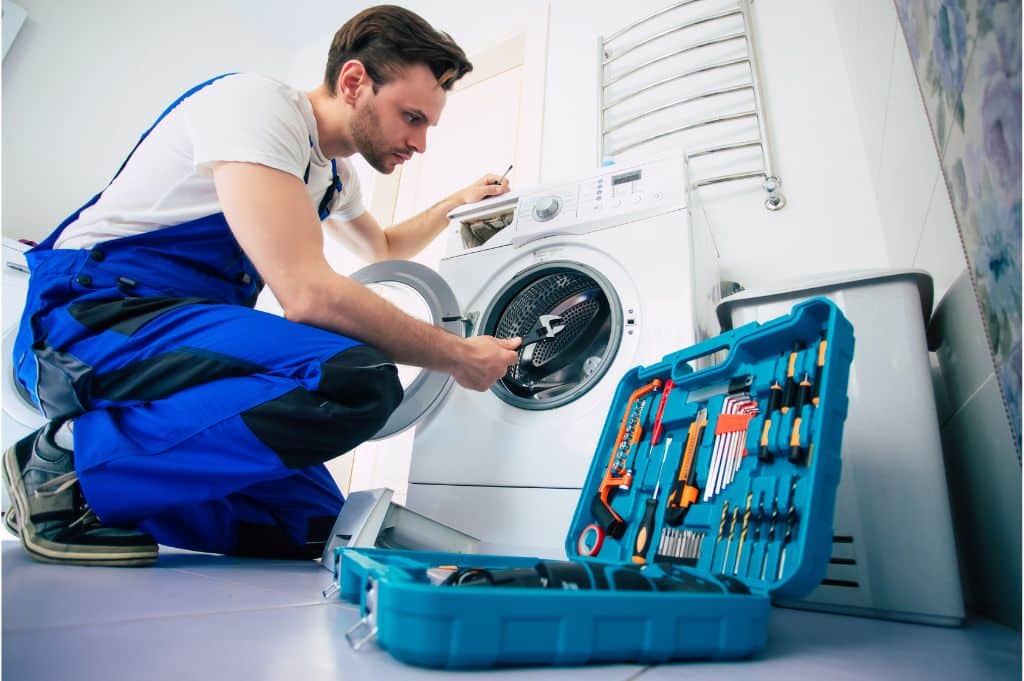
Essential Guide to Washer Fixing – Victory Appliances
Washing machines have become indispensable in our daily lives, handling the dirty work so we can enjoy fresh, clean clothes. But what happens when this trusty appliance starts to malfunction? Many people panic and immediately think of calling a washer fixing specialist. While professional help is sometimes necessary, there are a few things you can check and fix yourself before making that call. This guide will help you troubleshoot common washing machine issues, potentially saving you time, money, and the hassle of a broken appliance.
Understanding the Basics
Before diving into specific problems, it’s helpful to understand the basics of how washing machines work. Knowing the key components—like the drum, motor, belts, and water hoses—can make troubleshooting much easier. When you’re aware of what each part does, identifying and fixing issues becomes less daunting.
Machine Vibrations
Is your washing machine shaking like it’s about to take off? One of the most common issues in washer fixing is dealing with machine vibrations. Excessive vibrations can be alarming, but they’re often easy to fix. Start by checking if the machine is overloaded. An uneven load is one of the main causes of vibrations. Rearrange the items inside the drum to see if that helps. If the machine still vibrates, check if it’s level. You can adjust the feet or add plywood under the legs to stabilize it. If these steps don’t solve the problem, it might be time to call for washer fixing in Plano.
Machine Leakage
Discovering water on the floor can be alarming, but it doesn’t always indicate a severe problem requiring immediate washer fixing. Leaks can often result from improper alignment, loose hoses, or clogs in the water line. During your washer fixing efforts, inspect the hose washers for wear and tear, and ensure there is nothing blocking the water flow. Sometimes, a simple adjustment can solve the leakage issue, saving you the cost and inconvenience of professional repair.
Washer Won’t Fill with Water or Run Properly
A washer that won’t fill with water or run correctly can be frustrating. Before assuming the worst, check if the washing machine is receiving power—sometimes, a circuit breaker may have tripped. Another critical step in washer fixing is to inspect the hoses for blockages that could be interrupting the water supply. Addressing these basic issues can often restore your washer to working order without needing to call in a professional.
Improper Spinning or Drainage
Improper spinning or drainage is another frequent issue that arises during washer fixing. This can be caused by incorrect loading of clothes, using too much detergent, or clogged hoses. If you’ve checked these factors and the problem remains, it may be time to seek professional washer fixing assistance. Pre-troubleshooting these issues not only helps you determine if repair is necessary but also provides the repair specialist with valuable information to address the problem more efficiently.
Unusual Noises
Hearing strange noises coming from your washing machine? Knowing the kind of noise will help you in identifying the problem. Rattling or grinding sounds might indicate that a loose object, like a coin, is caught in the drum or pump. If you hear banging, it could be due to an unbalanced load or loose components. You can examine the interior parts of the machine to determine where the noise is coming from. Tightening loose parts or removing foreign objects usually resolves the issue.
Washer Door Won’t Open
A washing machine door that refuses to open can be incredibly frustrating, especially when you have wet clothes trapped inside. If your washer has an electronic lock, it might be stuck due to a power outage or malfunction.Before opening the door, unplug the device first and wait a few minutes. For top-loaders, check if the machine is still in a cycle; some models lock the lid until the cycle completes. If these steps don’t work, consult the manual for a manual release method or call a professional.
Washer Smells Bad
If your washer smells less than fresh, it’s likely due to mold or mildew buildup inside the drum or seals. Start by adding a cup of vinegar or bleach to hot water and running an empty cycle. This will help in eliminating smells and killing microorganisms. Afterward, wipe down the drum and seals with a damp cloth. Leaving the door open between washes can also help prevent odors by allowing the interior to dry out.
Error Codes Displayed
Modern washing machines often display error codes when something goes wrong. These codes can be confusing, but they’re usually a clue to what’s causing the issue. Refer to your machine’s manual to interpret the code and follow the recommended troubleshooting steps. Sometimes, a simple reset can clear the error and restore normal operation. You may need to seek professional assistance if the problem continues.
Water Temperature Issues
If your washer isn’t filling with hot or cold water as it should, there could be a problem with the water supply or the machine’s internal thermostat. Start by checking that the water faucets are fully open and the hoses aren’t kinked. If the issue persists, the thermostat might be faulty, or the water heater settings might need adjusting. These problems can often be fixed by a professional if you’re not comfortable doing it yourself.
Clothes Come Out Dirty
It’s frustrating to find your clothes coming out of the washer still dirty or covered in residue. This issue could be due to using the wrong detergent, overloading the machine, or selecting an inappropriate wash cycle. To fix this, try using less detergent and running a cleaning cycle on the washer itself. Make sure you’re not overloading the drum and use the correct settings for the type of clothes you’re washing.
Washer Shakes During Spin Cycle
If your washer shakes violently during the spin cycle, it could be due to an unbalanced load. Try redistributing the clothes inside the drum and see if that reduces the shaking. If the issue continues, ensure that the machine is properly leveled. Adjust the feet or place a sturdy mat underneath to absorb some of the vibrations.
Maintenance Tips
Routine upkeep is necessary for ensuring your washing machine operates efficiently. Clean the drum and seals regularly, check hoses for wear and tear, and ensure the machine is level. Performing these simple tasks can extend the life of your washer and prevent costly repairs down the line. Consider scheduling routine inspections with a professional to catch potential issues before they become serious problems.
Conclusion

Essential Guide to Washer Fixing – Victory Appliances
Troubleshooting your washing machine can be a straightforward process if you know what to look for. By following these steps, you can often resolve common issues on your own without needing to call in a repair specialist. However, if the problem persists or you’re unsure about how to proceed, don’t hesitate to contact a professional. A well-maintained washer can provide years of reliable service, so taking the time to troubleshoot and care for it is well worth the effort.
Don’t let a broken appliance slow you down. At Victory Appliances, our expert technicians are ready to bring your machines back to life! No matter if it’s a fridge, washer, oven, or any other appliance, we provide prompt and professional service to meet your needs. Call us today!
FAQs
1. How frequent should my washing machine be cleaned?
It’s a good idea to clean your washing machine once a month to prevent buildup of detergent, mold, and mildew.
2. What detergent is best for my washer?
Using a high-efficiency (HE) detergent is recommended for most modern washers, as it’s formulated to create fewer suds.
3. How can I prevent my washing machine from smelling bad?
Leave the door open after each wash to allow the drum to dry out, and regularly run a cleaning cycle with vinegar or bleach.
4. Can I fix a leaking washing machine myself?
Yes, in many cases, leaks are caused by loose hoses or worn seals that you can fix yourself. However, for major leaks, it’s best to call a professional.
5. When should I replace my washing machine?
Consider replacing your washer if it’s over 10 years old, requires frequent repairs, or no longer meets your household’s needs.
